Ecosystems
Articles on ecosystems
-
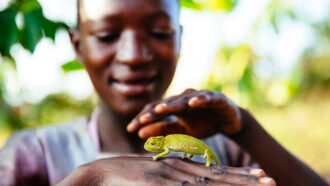 Animals
AnimalsStudy finds big drop in animal populations since 1970
But the same thing is not happening throughout the kingdom. For instance, more than half of vertebrate populations are stable or increasing.
-
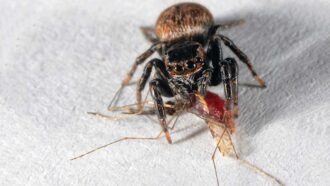 Animals
AnimalsIf mosquitoes vanished, would we miss them? Vampire spiders might
Vampire spiders get their meals from blood-filled Anopheles mosquitoes. But if those insects disappear, the spiders will likely adapt.
-
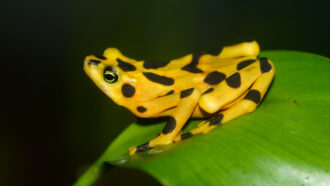 Animals
AnimalsSome spikes in malaria cases may be tied to amphibian die-offs
Amphibian deaths from a fungal disease may have led to more mosquitoes — and an increase in malaria cases in Costa Rica and Panama.
-
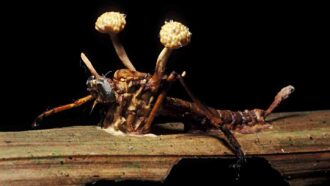 Animals
AnimalsLet’s learn about parasites that create zombies
Some parasites turn their victims into mindless puppets that do the parasites’ bidding, even at the cost of their own lives.
-
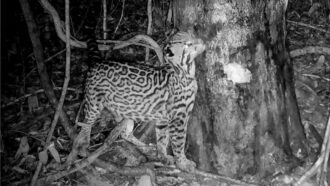 Animals
AnimalsSeveral mammals use a South American tree as their pharmacy
Researchers in Brazil’s Atlantic Forest stumbled onto something very strange. They watched as animals “doctored” themselves with products from a tree.
-
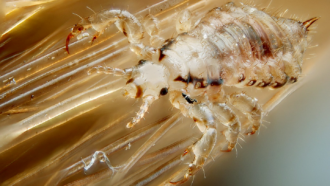 Animals
AnimalsSome ecologists value parasites — and now want a plan to save them
Parasites get a bad rap as disease-causing, unwelcome guests on other organisms. But parasites are also imperiled, and scientists don’t want to lose them.
-
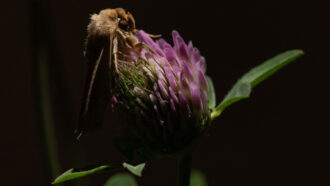 Animals
AnimalsWhen bees are away, moths come out to pollinate
Camera footage reveals that moths make roughly a third of the visits to red clover, working under the cover of night.
By Jake Buehler -
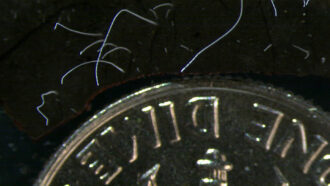 Microbes
MicrobesThis giant bacterium lives up to its name
The newly discovered Thiomargarita magnifica is about the size of your eyelash and is surprisingly complex.
-
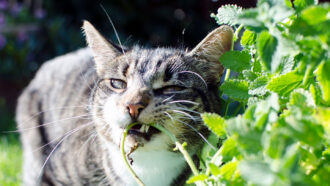 Plants
PlantsCatnip’s insect-repelling powers grow as Puss chews on it
Damaging the leaves boosts the plant’s chemical defenses — and their appeal to cats.
By Anil Oza -
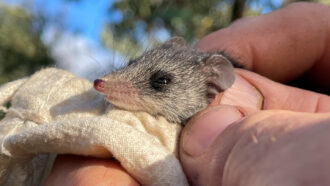 Animals
AnimalsPalm-size marsupials may face extinction from wild ‘house’ cats
After surviving Australian bushfires, the Kangaroo Island dunnart is losing ground as it's targeted by hungry predators.
By Asa Stahl -
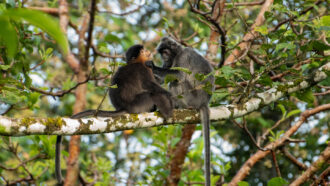 Animals
Animals‘Mystery monkey’ could mean its parent’s species may be in trouble
Changes to monkeys’ habitats — including some forest loss to oil palm plantations — might explain why this animal’s parents mated.
-
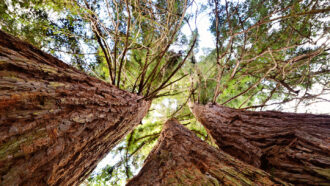 Plants
PlantsSome redwood leaves make food while others drink water
The two types of leaves grow at different heights in trees at dry versus wet areas. They may help redwoods adapt to climate change.